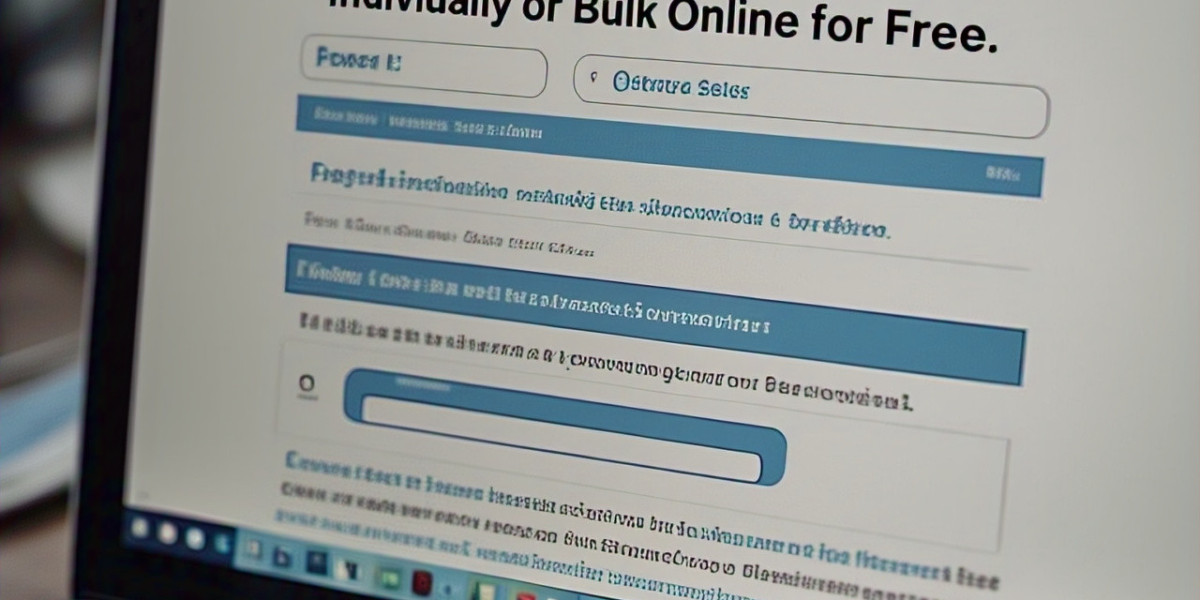AI image-to-video technology uses artificial intelligence to transform still images into dynamic video content. By leveraging machine learning algorithms, computer vision, and deep learning models, AI systems analyze static images and add movement, transitions, and effects to create fluid, lifelike videos. This technology is revolutionizing content creation by allowing marketers, content creators, and businesses to easily generate high-quality videos without the need for expensive equipment or manual video editing.
As AI-driven image-to-video tools become more accessible, their potential applications in digital marketing, e-commerce, and social media have expanded dramatically. However, with the increasing use of AI in media creation, ethical concerns surrounding its implications have also come to the forefront. From deepfakes to content manipulation, the ethical considerations of AI image-to-video technology must be carefully examined.
The Impact of AI Image-to-Video on Digital Media
AI image-to-video tools are transforming how content is produced, shared, and consumed. These tools can streamline video production, create personalized content, and allow for scalable marketing efforts that were once only achievable by large enterprises with significant resources. However, as this technology becomes more prevalent, it also raises important ethical issues, including the authenticity of the content being generated and its potential for misuse.
As AI continues to advance, it is essential to address these ethical concerns to ensure that its use in digital media remains responsible, transparent, and fair. The growing reliance on AI for content creation presents a unique set of challenges, from misinformation to the manipulation of imagery in ways that could deceive or harm viewers.
Key Ethical Concerns Surrounding AI Image-to-Video Technology
The Rise of Deepfakes and Misinformation
One of the most significant ethical issues related to AI image-to-video technology is the potential for deepfakes—AI-generated videos that manipulate or fabricate a person's likeness or actions. Deepfakes have been used to create highly convincing but false representations of people, often leading to the spread of misinformation or harmful content. These videos can be made to look incredibly realistic, making it difficult for viewers to distinguish between what is real and what has been manipulated.
In the context of digital media and social media marketing, the use of deepfakes can have a severe impact on public trust. AI tools that generate videos from images can easily be exploited to create misleading content, influencing public opinion, tarnishing reputations, or spreading false narratives.
Ethical consideration: The ease with which AI-generated videos can manipulate content highlights the need for clear ethical guidelines and regulations regarding the creation and distribution of AI-generated media. Transparency and responsible use of AI technologies must be a top priority to avoid the unethical use of deepfakes.
Content Authenticity and Transparency
As AI becomes more integrated into the content creation process, questions around content authenticity and transparency emerge. AI image-to-video technology can create hyper-realistic videos that blend seamlessly with traditional media, making it harder for viewers to discern whether content is real or generated by AI. This lack of transparency can lead to a trust crisis, where audiences no longer believe what they see online.
For example, AI-generated promotional videos can be presented as if they were created through traditional production methods, even though they were generated using algorithms. This raises the ethical question: should businesses disclose when their videos are created by AI, or is it acceptable to hide the AI’s role in content creation?
Ethical consideration: Content creators and businesses must be clear about the use of AI in their media, ensuring that audiences are aware when content has been generated or altered by AI. Ethical guidelines around transparency can help maintain public trust and promote responsible content creation.
The Potential for Bias and Stereotyping in AI
Bias in AI algorithms is another significant ethical concern in the use of image-to-video technology. AI systems are often trained on large datasets, which may contain biases based on race, gender, or cultural stereotypes. If these biases are present in the training data, AI-generated videos may perpetuate harmful stereotypes or misrepresent certain groups of people.
For example, an AI tool that generates videos from images of diverse individuals might produce videos that predominantly feature certain demographics, excluding or misrepresenting others. This can reinforce existing biases and contribute to inequality, particularly in marketing campaigns or media content that is seen by millions of viewers.
Ethical consideration: Developers and businesses must ensure that the datasets used to train AI systems are diverse and free from biases. Ethical practices should include testing AI tools for potential bias and actively working to ensure that AI-generated content is inclusive and accurately represents all communities.
The Unintended Consequences of Mass AI Content Creation
As AI image-to-video technology enables the mass creation of video content, there are concerns about its impact on creativity, originality, and the authenticity of human expression. The automated nature of AI video creation may lead to an oversaturation of content, making it more difficult for unique, human-driven creativity to stand out.
Furthermore, the overreliance on AI tools for content creation could lead to a loss of personal touch and emotional connection with audiences. In marketing, for example, businesses might prioritize efficiency over authenticity, resulting in content that feels generic or disconnected from the real experiences of consumers.
Ethical consideration: While AI offers incredible opportunities for content production, it is essential to strike a balance between automation and human creativity. Ethical marketing should focus on maintaining a genuine connection with the audience, ensuring that content remains relatable and meaningful.
Privacy and Data Protection in AI Content Generation
The use of AI for personalized video creation often relies on large amounts of data, including user behavior, preferences, and personal information. As AI image-to-video tools generate content tailored to individual users, concerns around privacy and data protection arise. If AI tools use personal data without consent or fail to protect user information, this could lead to serious privacy violations and undermine trust in the technology.
For instance, if an AI tool creates a personalized video for a user based on their online activities or browsing history, it must ensure that data privacy laws (such as GDPR) are respected. Without proper safeguards, there is a risk of mishandling or exploiting user data for commercial gain.
Ethical consideration: Businesses and AI developers must prioritize data privacy by ensuring transparency in how user data is collected and used. Strict adherence to privacy laws and the implementation of ethical data-handling practices is crucial to avoid violating user trust.
Ensuring Ethical Use of AI Image-to-Video Technology
Developing Clear Guidelines for AI Use in Content Creation
To address the ethical concerns surrounding AI image-to-video technology, there must be clear guidelines and regulations in place. Governments, industry leaders, and tech companies should collaborate to create a framework that outlines the responsible use of AI in content creation. This framework should include rules for content authenticity, transparency, and privacy, as well as guidelines for preventing misuse of AI-generated media.
By setting standards for ethical AI use, businesses can avoid potential pitfalls and ensure that their content aligns with societal values and expectations. These guidelines can help foster trust with consumers and reduce the risk of AI being used to create misleading or harmful content.
Ensuring Transparency and Accountability
Transparency and accountability are key components of ethical AI usage. Content creators and businesses should clearly disclose when videos are generated using AI, especially in advertisements, promotional content, and news media. Labeling AI-generated videos helps consumers distinguish between real and artificial content, promoting honesty and trust.
In addition, AI developers should be held accountable for the potential biases in their algorithms and datasets. Regular audits and transparency reports can ensure that AI systems are working as intended and do not inadvertently perpetuate harmful stereotypes or biases.
Promoting Ethical AI Development and Implementation
To ensure the ethical development of AI image-to-video technology, there must be a focus on inclusive and diverse training data. Developers should work to eliminate biases and ensure that AI tools represent all communities accurately and respectfully. Ethical AI development also includes safeguarding user data and protecting privacy in accordance with data protection regulations.
Collaboration among AI developers, regulatory bodies, and content creators is crucial to promote responsible practices and minimize the risks associated with AI-generated media. A commitment to ethical AI development will help businesses harness the full potential of AI technology while maintaining public trust and integrity.
Conclusion
AI image-to-video technology is transforming the digital media landscape, offering tremendous opportunities for content creators and marketers. However, with great power comes great responsibility. As this technology continues to evolve, it is essential to address the ethical concerns it raises, including the potential for misinformation, biases, privacy violations, and the loss of human creativity. By establishing clear ethical guidelines, promoting transparency, and ensuring accountability, we can ensure that AI image-to-video technology is used in ways that benefit society, enhance creativity, and maintain trust with consumers.
The future of AI in digital content creation depends on a careful balance between innovation and ethics. By prioritizing responsible use, we can unlock the full potential of AI image-to-video technology while safeguarding against its risks.
FAQs About Ethical Considerations in AI Image-to-Video Technology
What are the ethical concerns with AI-generated videos?
The primary ethical concerns with AI-generated videos include misinformation, the potential for deepfakes, content manipulation, bias in algorithms, and issues related to data privacy and transparency.
How do deepfakes contribute to ethical issues in AI image-to-video technology?
Deepfakes are AI-generated videos that manipulate a person's likeness, which can be used to spread false information, harm reputations, and deceive audiences. This raises significant ethical concerns around content authenticity and trust in digital media.
Why is transparency important in AI image-to-video content creation?
Transparency ensures that audiences are aware when content is generated by AI, helping to maintain trust and preventing the spread of misleading or fake content. It also fosters ethical practices by allowing consumers to make informed decisions about the media they consume.
How can AI-generated content be biased?
AI-generated content can reflect biases present in the datasets used to train the AI. These biases can lead to the misrepresentation of certain groups of people, perpetuating harmful stereotypes or excluding minority groups from representation in media.
What steps can developers take to ensure AI-generated videos are ethical?
Developers can ensure ethical AI video creation by using diverse and inclusive datasets, performing regular audits to detect biases, and prioritizing user privacy and data protection in AI systems.
How can businesses prevent misuse of AI image-to-video technology?
Businesses can prevent misuse by adhering to ethical guidelines, being transparent about the use of AI in their content, and ensuring their AI-generated media complies with legal standards and societal expectations.
Can AI image-to-video technology help promote diversity in digital media?
Yes, if AI systems are trained on diverse and inclusive data, they can help promote a more balanced and accurate representation of different groups in digital media, combating stereotypes and encouraging inclusivity.
How can businesses maintain authenticity while using AI in content creation?
By disclosing when content is AI-generated and ensuring that videos align with the brand's values and messaging, businesses can maintain authenticity while still utilizing AI tools for video creation.
How does AI image-to-video technology affect creative industries?
AI image-to-video technology can streamline the production process, but it may also raise concerns about the loss of human creativity and originality. It is important to strike a balance between automation and human-driven creativity.
What legal protections should be in place for AI-generated content?
Legal protections should include clear regulations on data privacy, content authenticity, intellectual property rights, and the prevention of deepfakes to ensure that AI-generated content is used ethically and responsibly.







